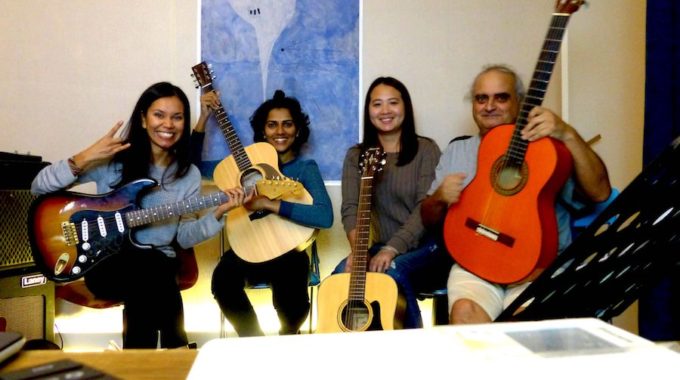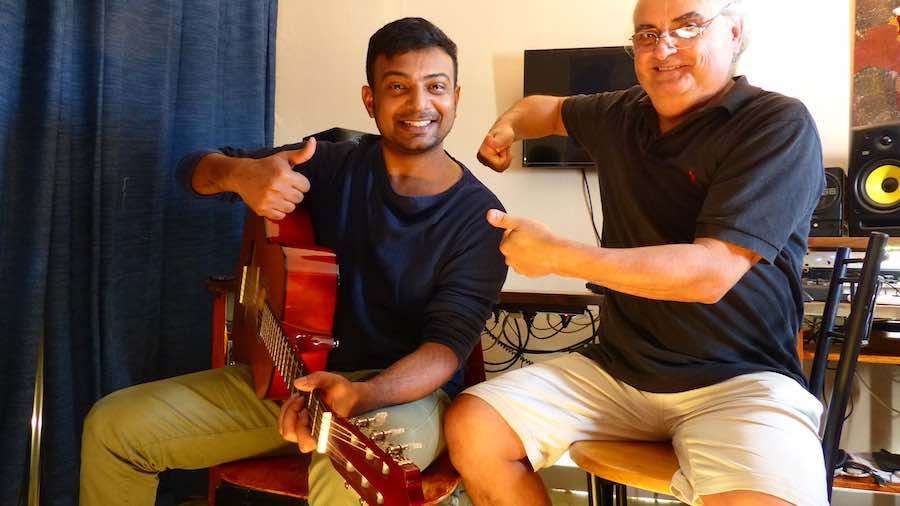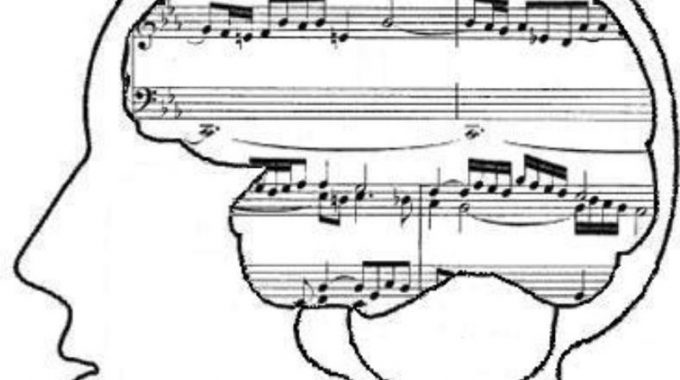Here are some valuable tips for individuals who struggle with memorizing music and experience anxiety…

How to Practice the Guitar with Joy
Explore the world of mastering guitar accuracy and uncover the secrets to joyful and structured guitar learning. Learn how to truly understand a song, avoid unnecessary repetition, and let your eagerness drive your musical journey. Explore the balance between discipline and joy, and discover the creative tools that enhance your musical expression. This comprehensive overview of guitar learning promises a deep connection to music and life itself.
Mastering Guitar Accuracy: The Sound Before the Fingers
When we embark on learning a song, our common goal is to achieve accuracy in both its chords and melody. This pursuit of “what,” “when,” and “why” transcends all levels and stages of our musical journey. However, I firmly believe that accuracy is a byproduct of our ability to hear the sound in our minds before we place our fingers on the guitar fretboard or strings.
The key lies in our understanding of the sound, our capacity to hear it, and our ability to sing it aloud before the final placement of our fingers. Skipping this vital step of hearing and singing may lead to endless and unproductive practice sessions. The more proficient you become at hearing and singing the desired guitar sounds, the more satisfying your musical journey will be, and the quicker you’ll master your instrument.
Accuracy, both in the melody and accompaniment, should always be a focal point in your practice routine. Avoid guesswork when it comes to finger placement; instead, start by singing the sound you aim to create and then locate it on your instrument. If you find it challenging to sing the sound, take the time to imagine it first. Imagining a sound is a critical step in the process of understanding.
This imagining process should occur at a comfortable pace, ensuring that you can fully grasp the sound you’re aiming for. Once this mental rehearsal becomes second nature, you’ll seamlessly apply your accuracy to the tempo, enabling you to play the musical phrase on your guitar, or any other instrument, at your desired speed.
Avoid Unnecessary Repetition
The ultimate goal of all practice is to derive enjoyment from it while minimizing unnecessary repetition. We practice to prepare ourselves for the moment when we share our performance and music live with our eager and beloved audience. Learning how to play the guitar with joy is a continuous essential aspect of our daily routines.

Eagerness Over Discipline
What if we didn’t need discipline but only the eagerness to achieve a goal satisfactorily? If we’re eager to learn and consistently ask the right questions to reach our desired goal, making music becomes a highly enjoyable experience. Feeling bored or distracted indicates learning without the necessary emotional connection for lasting memories. Consequently, you might be practicing incorrectly and not having fun. Always ask yourself, “How can I play what I desire as soon as possible and have fun along the way?”
In general, not enjoying your guitar playing may be due to several factors: a lack of steady tempo, struggling to sing what you can play, not grasping the groove of the song, and failing to understand the harmonic tension in each passage you perform.
Excessive discipline can result in emotional blockages. Too much discipline and repetition may lead to prolonged feelings of disgust or a lack of desire, which can be challenging to overcome. It’s essential to set limits in your learning and stop well before feeling overwhelmed. Learn how to practice the guitar with joy.
These tips apply to various guitar styles, including jazz, blues, flamenco, funk, and others.
Discovering Joy in Structured Guitar Learning
Musicians require structure to effectively learn and play various music styles. A guitar teacher should provide you with the appropriate educational framework to help you achieve your desired musical goals, whether in the short term or long term. This structured approach to learning should address the fundamental question of how to learn effectively and joyfully.
The process of learning should be enjoyable, steering clear of unnecessary repetitions. It should maintain a steady tempo, encourage you to sing what you aspire to play, and even enable you to compose your music. Additionally, it should foster the creation of rhythmic and melodic variations, impart an understanding of why and how to accompany on the guitar, and convey the nuances of emotional expression as you refine your interpretation within a song.
Music Skills and Creativity
Music becomes immensely enjoyable when we introduce constant variations to a given song. However, true enjoyment on the guitar is only possible when we have an intimate understanding of the song.
What does it mean to truly know a song, regardless of its style, including blues guitar?
Knowing a song well entails the ability to count it in, maintain a steady tempo, sing the entire melody continuously, and play the chords simultaneously. Once you’ve achieved this level of familiarity, you’ve truly grasped the song and are ready to explore variations. You’re on the right path in learning how to practice the guitar effectively.
At the Creative Guitar School, we delve into creating harmonic and rhythmic variations for both the melody and accompaniment. We equip ourselves with over 100 tools to evoke the desired emotions. Proficiency in handling these tools allows us to make on-the-fly choices.
Once you’ve mastered these creative tools, you’ll find an endless wellspring of motivation to keep playing. Music and the creative flow offer a unique and incomparable sensation—a sense of pure peace of mind, akin to observing existence in motion.
Learn music and have fun. Let yourself go, and embrace life as an observer of emotions that imbue our existence with love and pleasure.
Summary
In this comprehensive overview of guitar learning, several key points emerge:
- Mastering Guitar Accuracy: True mastery of playing the guitar involves hearing the sound in your mind before placing your fingers on the fretboard. This auditory imagination is essential for achieving accuracy in chords and melody.
- Avoiding Unnecessary Repetition: The ultimate goal of practice is to derive joy from music while minimizing unnecessary repetition. Effective practice is the path to sharing music live with an eager audience.
- Eagerness Over Discipline: A genuine eagerness to learn and a focus on enjoying the learning process can lead to more meaningful musical experiences. Striking a balance between discipline and joy is essential for progress.
- Structured Guitar Learning: Musicians benefit from a structured educational framework, which includes maintaining a steady tempo, singing what you aim to play, and understanding the nuances of music.
- Music Skills and Creativity: True enjoyment in music comes from a deep understanding of songs. This involves the ability to count, maintain tempo, sing melodies continuously, and play chords simultaneously. Creative tools and variations further enhance musical expression.
Overall, the journey of learning and practicing the guitar is a dynamic and emotionally rich experience that offers a profound connection to music and life itself.


